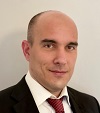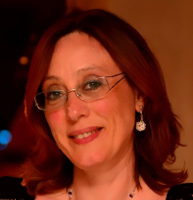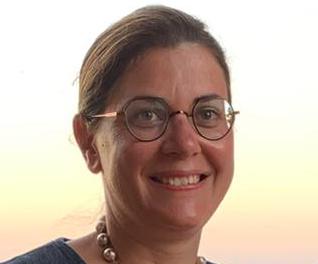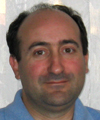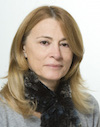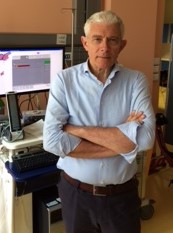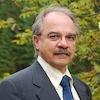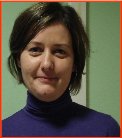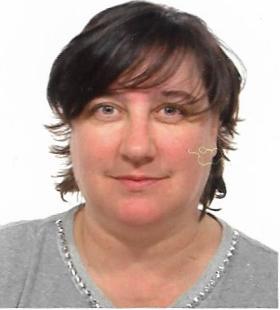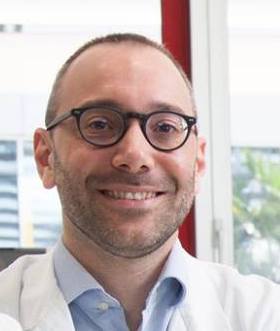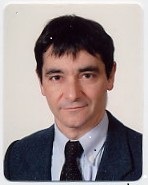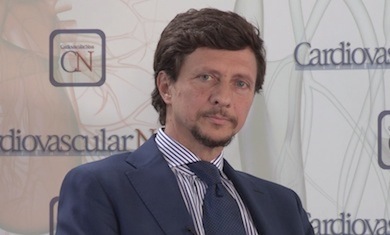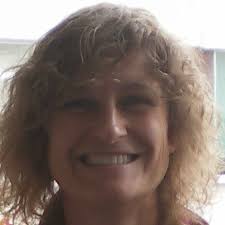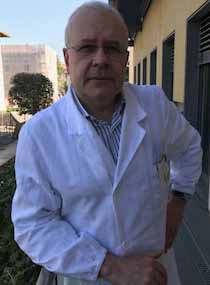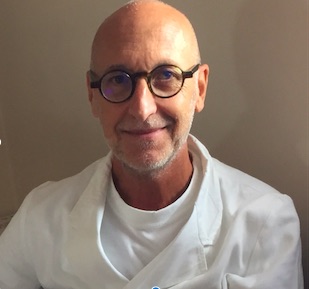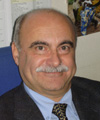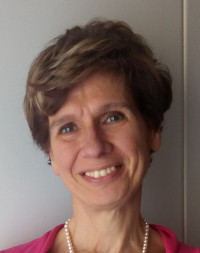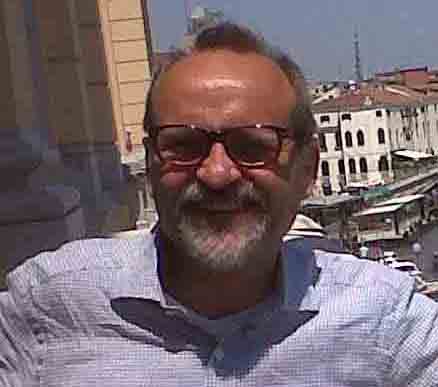Studying at the University of Verona
Here you can find information on the organisational aspects of the Programme, lecture timetables, learning activities and useful contact details for your time at the University, from enrolment to graduation.
Academic calendar
The academic calendar shows the deadlines and scheduled events that are relevant to students, teaching and technical-administrative staff of the University. Public holidays and University closures are also indicated. The academic year normally begins on 1 October each year and ends on 30 September of the following year.
Course calendar
The Academic Calendar sets out the degree programme lecture and exam timetables, as well as the relevant university closure dates..
| Period | From | To |
|---|---|---|
| FISIO VR 2A1S | Oct 1, 2019 | Nov 15, 2019 |
| FISIO VR 3A1S | Oct 1, 2019 | Nov 8, 2019 |
| FISIO VR 1A1S | Oct 7, 2019 | Dec 20, 2019 |
| FISIO VR 2A2S | Feb 3, 2020 | Mar 20, 2020 |
| FISIO VR 3A2S | Mar 9, 2020 | Apr 3, 2020 |
| FISIO VR 1A2S | Mar 9, 2020 | May 8, 2020 |
| Session | From | To |
|---|---|---|
| FISIO VR SESSIONE INVERNALE | Jan 7, 2020 | Jan 31, 2020 |
| FISIO VR SESSIONE ESTIVA | Jun 29, 2020 | Jul 31, 2020 |
| FISIO VR SESSIONE AUTUNNALE | Sep 1, 2020 | Sep 30, 2020 |
| Session | From | To |
|---|---|---|
| FISIO VR SESSIONE AUTUNNALE | Nov 1, 2020 | Dec 23, 2020 |
| FISIO VR SESSIONE PRIMAVERILE | Mar 1, 2021 | Apr 30, 2021 |
| Period | From | To |
|---|---|---|
| FESTIVITA' OGNISSANTI | Nov 1, 2019 | Nov 1, 2019 |
| FESTIVITA' IMMACOLATA CONCEZIONE | Dec 8, 2019 | Dec 8, 2019 |
| Vacanze di Natale | Dec 24, 2019 | Jan 6, 2020 |
| VACANZE DI PASQUA | Apr 10, 2020 | Apr 15, 2020 |
| FESTA DELLA LIBERAZIONE | Apr 25, 2020 | Apr 25, 2020 |
| Festa del Lavoro | May 1, 2020 | May 1, 2020 |
| FESTIVITA' DEL SANTO PATRONO SAN ZENO | May 21, 2020 | May 21, 2020 |
| FESTA DELLA REPUBBLICA | Jun 2, 2020 | Jun 2, 2020 |
| Description | Period | From | To |
|---|---|---|---|
| FISIO VR 3^ anno - 1^semestre (1 periodo) | FISIO VR 3^ anno - 1^semestre (1 periodo) | Nov 11, 2019 | Dec 20, 2019 |
| FISIO VR 2^ anno - 1^semestre | FISIO VR 2^ anno - 1^semestre | Nov 18, 2019 | Dec 20, 2019 |
| FISIO VR 3^ anno - 1^semestre (2 periodo) | FISIO VR 3^ anno - 1^semestre (2 periodo) | Feb 3, 2020 | Mar 6, 2020 |
| FISIO VR 1^ anno - 1^semestre | FISIO VR 1^ anno - 1^semestre | Feb 3, 2020 | Mar 6, 2020 |
| FISIO VR 2^ anno - 2^semestre | FISIO VR 2^ anno - 2^semestre | Mar 23, 2020 | Jun 26, 2020 |
| FISIO VR 3^ anno - 2^semestre | FISIO VR 3^ anno - 2^semestre | Apr 6, 2020 | Jun 26, 2020 |
| FISIO VR 1^ anno - 2^semestre | FISIO VR 1^ anno - 2^semestre | May 11, 2020 | Jun 26, 2020 |
Exam calendar
Exam dates and rounds are managed by the relevant Medicine Teaching and Student Services Unit.
To view all the exam sessions available, please use the Exam dashboard on ESSE3.
If you forgot your login details or have problems logging in, please contact the relevant IT HelpDesk, or check the login details recovery web page.
Should you have any doubts or questions, please check the Enrollment FAQs
Academic staff
 davide.adamoli@univr.it
davide.adamoli@univr.it
 cinzia.biondani@ospedaleuniverona.it
cinzia.biondani@ospedaleuniverona.it
 giorgio.borghesan@libero.it
giorgio.borghesan@libero.it
 davideconte.bioeng@gmail.com
davideconte.bioeng@gmail.com
 annamaria.molino@univr.it
annamaria.molino@univr.it
 nicola.pelizzari@univr.it
nicola.pelizzari@univr.it
 alessandra.zivelonghi@aovr.veneto.it
alessandra.zivelonghi@aovr.veneto.it
Study Plan
The Study Plan includes all modules, teaching and learning activities that each student will need to undertake during their time at the University.
Please select your Study Plan based on your enrollment year.
1° Year
| Modules | Credits | TAF | SSD |
|---|
2° Year activated in the A.Y. 2020/2021
| Modules | Credits | TAF | SSD |
|---|
3° Year activated in the A.Y. 2021/2022
| Modules | Credits | TAF | SSD |
|---|
| Modules | Credits | TAF | SSD |
|---|
| Modules | Credits | TAF | SSD |
|---|
| Modules | Credits | TAF | SSD |
|---|
Legend | Type of training activity (TTA)
TAF (Type of Educational Activity) All courses and activities are classified into different types of educational activities, indicated by a letter.
Educational, relational and organizational aspects about the field of disability (2019/2020)
The teaching is organized as follows:
Learning outcomes
Provide basic knowledge of assistive devices and technologies for autonomy and disability, thera-peutic education in counseling, relational dynamics in teamwork, organization of rehabilitation sys-tem and evaluation system in disabilities. ASSISTIVE DEVICES AND TECHNOLOGY FOR AUTONOMY AND DISABILITY Know the normative aspects and the classification of technologies and assistive devices for the re-habilitation, independence, school-, working and social integration of disabled people. Know the essential aspects of the assessment process and proposal of orthoses and assistive devices, especially for the different postures and mobility (including both gait and wheelchair, and indoor/ outdoor contexts). Know the fundamental components of prothesis and their different types. Know the major strategies of the augmentative and alternative communication in motor and sensori-al disabilities and their related technological instruments. Develop knowledge and competences about the possible solutions for the mobility of a disabled person. Know the selection criteria of wheelchairs, both manual and electrical. METHODOLOGY OF THERAPEUTIC EDUCATION IN COUNSELING Recognise the constitutive elements of therapeutic relationship with the purpose of educat-ing/rehabilitating patients and some aspects of our own communicative style. Train empathic listen-ing and effective communication in the relationship with patients, tutors and classmates. Know the methodological aspects of therapeutic education, the essential components of educative plans, possible assessment strategies of learning of the concepts transmitted to the patient or its caregiver. Reflect on the educative and formative aspects that are particularly relevant nowadays and know the overall structure of the development of a person and his/her needs in the welfare field. EVALUATION SYSTEM OF DISABILITIES AND ORGANIZATION OF REHABILITA-TION SYSTEM Know the concept of health according to the OMS and the classification ICF based on the bio-psycho-social model. Know the evolution of the rehabilitation process and its related theories. Know the concept of efficacy indicators for the monitoring of rehabilitation objects. Know the or-ganization of different rehabilitating settings of the National Sanitary System and the accredited Private. RELATIONAL DYNAMICS IN TEAMWORK Offer the students a general overview of the duties of professions of health to emphasise the charac-teristics of teamwork, competences, responsibility, integration and professional independence.
Program
RELATIONAL DYNAMICS IN GROUP WORK
The program will focus on topics concerning, in particular, the individual-group relationship, the socialization process, the roles in the group and the group work.
METHOD OF THERAPEUTIC EDUCATION IN HELP RELATIONS
The program will focus on issues concerning, in particular, the regulatory and professional framework as well as the concept and models of therapeutic education, the processes of adaptation to the disease, the phases of educational planning, the application of techniques and effective strategies to facilitate the communication in the patient education process
DISABLING ASSESSMENT SYSTEMS AND ORGANIZATION OF REHABILITATION SERVICES
The program will focus on issues concerning, in particular, the concept of health according to the World Health Organization, the International Classification of Functioning, Disability and Health (ICF), the concept of indicators of effectiveness for monitoring the achievement of rehabilitation objectives, the Italian health legislation and the structure of the National and Regional Health Service, especially in relation to rehabilitative activities.
AUXILIARIES AND TECHNOLOGIES FOR AUTONOMY AND DISABILITY
The program will focus on issues concerning, in particular, the basic concepts on aids, the regulatory aspects supporting the person with disabilities, the Italian legislative and legislative framework on the subject of aids, the criteria for the individualized choice of aids, the iterative prescription of the aids, the aids and the domestic autonomy / the work integration / the school integration, the aids for the posture and the mobility, the fundamental components of a prosthesis and the different types of prostheses.
Bibliography
| Author | Title | Publishing house | Year | ISBN | Notes |
|---|---|---|---|---|---|
| Bonaiuti | Le scale di misura in riabilitazione (Edizione 3) | SEU | 2011 | 9788865150269 | |
| Nino Basaglia | Medicina Riabilitativa | Idelson - Gnocchi | 2009 | 9788879474917 | |
| Giorgio N. Valobra, Renato Gatto, Marco Monticone | Trattato di medicina fisica e riabilitazione | Utet Scienze Mediche | 2007 | 8802078963 | |
| D’Ivernois J.F. - Gagnayre R. | Educare il paziente. Un approccio pedagogico. (Edizione 3) | McGraw-Hill | 2009 | 9788838636776 | |
| A. Beghelli, A. Ferraresi, M. Manfredini | Educazione terapeutica (Edizione 2) | Carocci Faber | 2015 |
Examination Methods
Written and oral exam
Career prospects
Module/Programme news
News for students
There you will find information, resources and services useful during your time at the University (Student’s exam record, your study plan on ESSE3, Distance Learning courses, university email account, office forms, administrative procedures, etc.). You can log into MyUnivr with your GIA login details: only in this way will you be able to receive notification of all the notices from your teachers and your secretariat via email and soon also via the Univr app.
Gestione carriere
Graduation
Documents
| Title | Info File |
|---|---|
|
|
pdf, it, 367 KB, 19/02/24 |
|
|
pdf, it, 142 KB, 19/01/24 |
|
|
pdf, it, 862 KB, 19/01/24 |
|
|
pdf, it, 273 KB, 25/03/24 |
Appelli d'esame
AVVISO IMPORTANTE
Gli appelli d’esame si aprono per l’intero Insegnamento e non per singoli moduli.
Per il singolo modulo di cui non è stato aperto appello, come sopra descritto, una settimana prima dell'esame, è OBBLIGATORIO comunicare, utilizzando la propria mail istituzionale o di classe, al/i docente/i, l’intenzione di sostenere l’esame stesso.
Negli allegati, divisi per anno, sono indicate, dove comunicate dai Coordinatori d’Insegnamento, tutte le date, gli orari, le aule e le modalità degli esami.
L’iscrizione agli APPELLI D'ESAME APERTI ON LINE è OBBLIGATORIA.
Documents
| Title | Info File |
|---|---|
|
|
pdf, it, 511 KB, 20/03/24 |
|
|
pdf, it, 598 KB, 15/04/24 |
|
|
pdf, it, 505 KB, 12/04/24 |
|
|
pdf, it, 313 KB, 02/10/23 |
Tirocinio professionalizzante
a) Finalità del Tirocinio Le attività di tirocinio sono finalizzate a far acquisire allo studente le competenze specifiche previste dal profilo professionale. Per conseguire tali finalità formative, si possono attivare convenzioni con strutture che rispondano ai requisiti di idoneità per attività, dotazione di servizi e strutture. I 60 crediti minimi riservati al tirocinio sono da intendersi come impegno complessivo necessario allo studente per raggiungere le competenze professionali “core” previste dal rispettivo profilo professionale. Il tirocinio professionale comprende: - sessioni tutoriali che preparano lo studente all’esperienza; - esercitazioni e simulazioni in cui si sviluppano le abilità tecniche, relazionali e metodologiche in situazione protetta prima o durante la sperimentazione nei contesti reali; - esperienze dirette sul campo con supervisione; - sessioni tutoriali e feedback costanti; - compiti didattici, elaborati e approfondimenti scritti specifici e mandati di studio guidato. b) La valutazione delle competenze acquisite in tirocinio Le esperienze di tirocinio devono essere progettate, valutate e documentate nel percorso dello studente. Durante ogni esperienza di tirocinio lo studente riceve valutazioni formative sui suoi progressi sia attraverso colloqui e schede di valutazione. Al termine di ciascun anno di corso viene effettuata una valutazione certificativa per accertare i livelli raggiunti dallo studente nello sviluppo delle competenze professionali attese. Tale valutazione è la sintesi delle valutazioni formative via via documentate durante l’anno di corso, il profitto raggiunto negli elaborati scritti e le performance dimostrate all’esame di tirocinio che può essere realizzato con colloqui, prove scritte applicative, esami simulati. La valutazione annuale è certificata da una Commissione presieduta dal Coordinatore della didattica professionale e composta almeno da un docente e da un Tutor Clinico. La valutazione certificativa del tirocinio sarà espressa in trentesimi in base al livello di raggiungimento degli obiettivi. Verrà registrato come “ritirato” lo studente che sospende il tirocinio per problemi di salute, gravidanza o per motivazioni personali; sarà registrata come “respinto” quando lo studente durante il percorso o alla fine del tirocinio non ha raggiunto livelli sufficienti negli obiettivi formativi. L’esame annuale di tirocinio prevede un unico appello per anno accademico, salvo particolari situazioni per le quali la commissione didattica potrà concedere un appello straordinario. c) Prerequisiti di accesso al tirocinio Pag. 7 di 12 Il Coordinatore della didattica professionale ammette alla frequenza dell’esperienza di tirocinio previsto per l’anno di corso gli studenti che: hanno frequentato regolarmente le attività teoriche, in particolare gli insegnamenti delle discipline professionali dell’anno in corso e dell’anno precedente; hanno partecipato regolarmente ai laboratori professionali ritenuti propedeutici al tirocinio d) Assenze dal tirocinio Lo studente che si assenta dal tirocinio per periodi brevi (assenze inferiori ad una settimana durante l’anno solare) può recuperare tali assenze su autorizzazione del tutor/clinico salvaguardando orari che offrono opportunità di apprendimento. Non sono ammessi recuperi di giornate isolate al di fuori del periodo dedicato al tirocinio. Lo studente che si assenta dal tirocinio per periodi lunghi (assenze superiori ad una settimana nell’anno solare) – per gravi e giustificati motivi – deve concordare con il Coordinatore della didattica professionale un piano di recupero personalizzato. Lo studente che conclude positivamente il tirocinio di anno con un debito orario sul monte ore previsto (non superiore a 15 ore), può essere ammesso all’esame annuale di tirocinio se l’assenza non ha compromesso il raggiungimento degli obiettivi di anno e può recuperare il suddetto debito entro la fine del 3° anno. Lo studente è tenuto a documentare le ore di presenza in tirocinio nel libretto, a farle controllare e controfirmare dal tutor e segnalare tempestivamente l’esigenza di recupero di eventuali assenze. e) Sospensione dal tirocinio Le motivazioni che possono portare alla sospensione dal tirocinio sono le seguenti: Motivazioni legate allo studente: - studente potenzialmente pericoloso per la sicurezza degli utenti/tecnologia o che ha ripetuto più volte errori che mettono a rischio la vita dell’utente; - studente che non ha i prerequisiti e che deve recuperare obiettivi formativi propedeutici ad un tirocinio formativo e sicuro per gli utenti; - studente che frequenta il tirocinio in modo discontinuo. Altre motivazioni: - stato di gravidanza nel rispetto della normativa vigente; - studente con problemi psicofisici che possono comportare stress o danni per lui, per i malati o per l’équipe della sede di tirocinio o tali da ostacolare le possibilità di apprendimento delle competenze professionali core. La sospensione temporanea dal tirocinio è proposta dal tutor al Coordinatore della didattica professionale tramite apposita relazione, che verrà discussa e motivata in un colloquio con lo studente. La sospensione è formalizzata con lettera del Coordinatore della didattica professionale allo studente. La riammissione dello studente al tirocinio è concordata con tempi e modalità definite dal Coordinatore della didattica professionale sentito il tutor che l’ha proposta. Qualora persistano le difficoltà che hanno portato alla sospensione temporanea dal tirocinio o ci sia un peggioramento che impedisce l’apprendimento delle abilità professionali, il Coordinatore della didattica professionale ha facoltà di proporre al Collegio Didattico la sospensione definitiva dello studente dal tirocinio tramite apposita relazione che documenti approfonditamente le motivazioni f) Studenti ripetenti per profitto insufficiente in tirocinio. Lo studente ripetente per un profitto insufficiente in tirocinio concorda con il Coordinatore della didattica professionale un piano di recupero personalizzato sulla base dei propri bisogni formativi che potrà prevedere un prolungamento dell’attività di tirocinio. Per essere ammesso a frequentare l’esperienza di tirocinio prevista dal piano di recupero personalizzato, allo studente ripetente è richiesto di Pag. 8 di 12 aver ripetuto le esperienze di laboratorio ritenute propedeutiche al tirocinio dal Coordinatore della didattica professionale. Lo studente insufficiente in tirocinio non può ripetere più di una volta il tirocinio per ogni anno di corso. Ciò vale anche nel caso in cui lo studente sospenda il tirocinio prima del termine previsto dal calendario e non si presenti all’Esame Annuale di Tirocinio. g) Tirocinio supplementare È possibile attivare un tirocinio supplementare in due casi: - studente ripetente o fuori corso, che abbia superato positivamente il tirocinio dell’anno in corso - studente che richieda un approfondimento tematico. Lo studente che richiede di svolgere un’esperienza supplementare dovrà rivolgersi al Coordinatore della didattica professionale che risponderà alle richieste compatibilmente con le esigenze organizzative. La frequenza dell’esperienza supplementare non deve interferire con il completamento dei suoi impegni di recupero teorico. L’esperienza supplementare dovrà essere valutata e registrata a tutti gli effetti sul libretto di tirocinio a scopi assicurativi, ma non potrà essere considerata un anticipo dell’anno successivo. h) Sciopero dei dipendenti delle strutture di tirocinio In caso di sciopero del personale dipendente delle strutture convenzionate per il tirocinio, che svolga attività di Guida, le esperienze di tirocinio saranno sospese. Tale assenza non dovrà essere recuperata, le ore saranno riconosciute come studio individualePer maggiori informazioni consultare la pagina del servizio
Orario lezioni
Si pubblicano gli orari delle lezioni relativi 2° semestre: Gli orari potrebbero subire alcune modifiche; pertanto si consiglia di consultare l'orario delle lezioni giornalmente nell‘area riservata MyUnivr e/o ORARIO LEZIONI.
Documents
| Title | Info File |
|---|---|
|
|
pdf, it, 697 KB, 24/08/23 |
|
|
pdf, it, 759 KB, 12/04/24 |
|
|
pdf, it, 712 KB, 28/02/24 |
|
|
pdf, it, 739 KB, 15/03/24 |
Student login and resources
Attività Seminariali/a scelta dello studente
Calendario delle Attività Seminariali tip F/a scelta dello studente
3 ANNO: 15/09/2022 SEMINARIO " EVIDENZE E PRASSI NELL'OSSERVAZIONE DEL PAZIENTE CON LOMBALGIA"
Documents
| Title | Info File |
|---|---|
|
|
pdf, it, 864 KB, 15/09/22 |

 +39 045 8027657
+39 045 8027657
